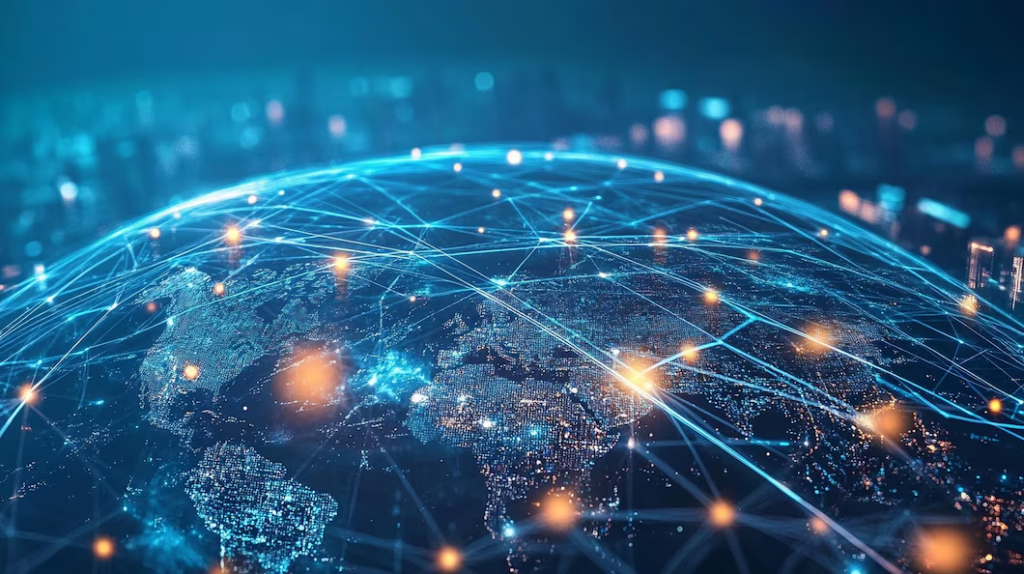The internet is everywhere today. We use it to chat with friends, watch movies, and learn new things. But have you ever wondered how it works? Or who keeps it running smoothly?
The internet is a huge network that connects people all over the world. It lets us send messages, share files, and visit websites anytime we want. But keeping it running is a big job that involves many people and companies working together.
In this blog, I’ll explain what makes the internet work, who helps keep it running, and why it’s so important.
What is the Internet?
The internet is like a giant web connecting computers around the world. It allows them to share information, no matter where they are. When you type a website address, your computer reaches out through the internet to find that site. This may sound easy, but a lot is happening behind the scenes.

How Does the Internet Work?
The internet works by connecting different networks. Each computer on the internet has its own address called an IP address. This address helps computers find each other, like how a mailing address helps deliver a letter.
When you visit a website, your computer sends a request. This request travels through many networks until it reaches the website’s server. The server then sends the information back to your computer. This all happens very quickly, thanks to the strong network of internet providers that manage the connections. Internet providers help deliver high-speed internet to homes, schools, and businesses.
Who Keeps the Internet Running?
Keeping the internet running is no easy task. Many people and organizations work together to make sure everything is working smoothly. Let’s meet some of the key players:
1. Internet Providers
Internet providers, also known as ISPs, are companies that connect your home to the internet. They offer different types of internet, like cable, fiber, and DSL. Without ISPs, we wouldn’t be able to get online. They make sure that the internet reaches millions of homes and businesses.
2. Data Centers
Data centers are buildings filled with computers that store huge amounts of data. Every website, video, and file is stored on these computers. When you open a website, the data center sends it to your computer. These centers are spread across the world and run all day and night.
3. Undersea Cables
Surprisingly, undersea cables play a big role in the internet. These cables are laid on the ocean floor, connecting continents. They let data travel across oceans. Without these cables, we wouldn’t be able to connect with people in different countries.
4. Servers
Servers are computers that store websites and apps. When you visit a website, the server sends the webpage to your screen. Servers are powerful machines that can handle lots of people visiting a site at once. They’re usually kept in data centers.
5. Network Engineers
Network engineers are the people who set up and fix the internet’s connections. They make sure everything is working right. If there’s a problem, they work quickly to fix it. Without them, the internet would have more issues and interruptions.
How Do We Connect to the Internet?
Connecting to the internet involves a few simple steps. Most of us use a broadband connection to get online at home or work. A broadband connection lets us connect quickly without needing to dial in each time. Broadband is fast and makes it easy to use the internet.
Here are some common ways people connect:
- Wi-Fi: This lets you connect wirelessly in your home.
- Fiber Optic: Fiber is fast and reliable but isn’t everywhere yet.
- DSL: Uses phone lines to connect to the internet.
- Mobile Data: Lets you use the internet on phones and tablets.

How Does the Internet Stay Safe?
Security is a big part of the internet. Many teams work hard to keep it safe from hackers and attacks. They use firewalls, passwords, and other tools to protect the network. Internet providers also help by offering security options, like antivirus software, to their customers.
Common Security Tools
- Firewalls: These act like gates, stopping harmful data from entering the network.
- Encryption: This makes data unreadable to outsiders.
- Antivirus Programs: Protect your device from viruses.
The Role of the Government
The government plays a role in internet safety and fairness. In some countries, the government makes rules to protect people’s data. These laws help keep personal information secure.
Governments also work with companies to make sure the internet is fair for everyone. In some areas, the government might even help bring the internet to remote locations.
Key Takeaways
- The internet works through a network of providers, data centers, and cables.
- Many people, like network engineers and data center workers, help keep it running.
- Internet safety is important, with tools like firewalls and encryption to protect data.
Conclusion
The internet is a vast and complex system, but it’s run by dedicated people and companies working together. From internet providers to undersea cables, each part plays a role in bringing the internet to our screens. So, next time you browse, remember there’s a whole team working to keep it running smoothly.
With the right providers and connections, we’re able to use the internet every day. Isn’t it amazing to think about all the work that goes into making it happen?
